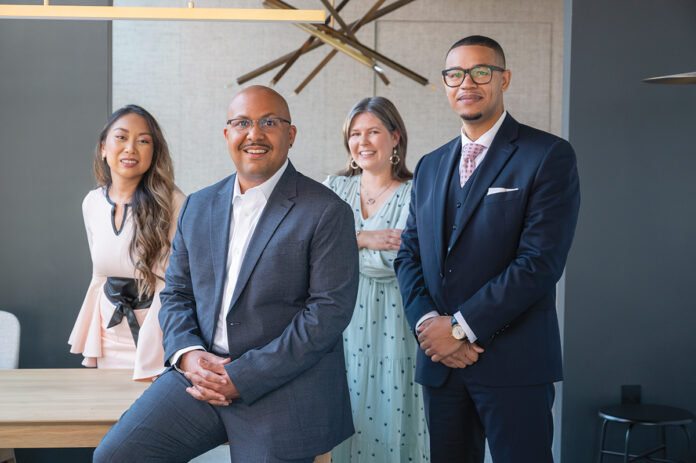
PBN Diversity and Inclusion Awards 2021
Diversity Champion: Ralph Tavares Jr.
Ralph Tavares Jr. has spent much of his professional career helping people of all racial, cultural and gender backgrounds to see their own unique strengths and experiences as assets, rather than hindrances to success.
Tavares is board president of Diversity & Inclusion Professionals Inc. The nonprofit networking and support group works with Rhode Island leaders trying to bring more voices and perspectives to their own work.
He has done similar work in leadership positions at the Roger Williams University School of Law, where he is director of diversity and outreach, and, before that, at Providence College and Salve Regina University.
What harms come about when marginalized people – people of color, of various gender expressions, of widespread backgrounds – are not part of leadership in institutions? Tavares has a quick answer: “mass incarceration, housing discrimination, voter suppressions, poverty, underserved schools, disproportionate police violence.” He summarized, “America in 2021, and it’s not working.”
He says Rhode Islanders are increasingly recognizing that diversity in every sector is necessary. He noted that people who identify as Black, Indigenous, and people of color will comprise the majority of the country’s population by about 2045, according to the U.S. Census Bureau.
At that point, Tavares said, “Whites will be in the minority. This will require us to think differently about education, business, nonprofits. It is an ethical imperative.”
Tavares said it was “jarring” for him to see a recent report by the Women’s Fund of Rhode Island that showed a vast majority of male, white faces among the leaders of nonprofits in the state.
‘We need different voices to bring a kaleidoscope of thinking.’
Ralph Tavares Jr.
It is hard to change these patterns, even in the presence of goodwill and good intentions, because “we are used to doing things the way we’ve always done them,” Tavares said.
Many decisions made with conscious or unconscious bias “tend to reinforce patriarchy and white supremacy and things that colonialism planted long ago,” he said.
A common example of bias can happen during the hiring process, Tavares says, when people making hiring decisions fall victim to “affinity bias.” That is when they see some common ground – like attending the same college – in some job applicants, which can bend a hiring decision in the direction of a familiar type of person.
“We tend to fall into the trap of ‘fit,’ ” as in a person who would “fit” into the company’s style and culture, he added.
But, Tavares said, “We must find the folks that don’t fit, because then you will have someone who offers a different lens, a different perspective.” If you have the same type of people in the room looking at the same problem, they are less likely to see a fresh avenue to a solution, he says.
“We need new voices; we need a counterbalance; we need different voices to bring a kaleidoscope of thinking,” Tavares said.
Before joining the Roger Williams University School of Law in 2019, Tavares was director of multicultural student success and assistant dean of undergraduate studies at Providence College for five years. Before that, he was associate director of admissions and multicultural education at Salve Regina University for more than a decade.
In those places, he has seen nonwhite students or other marginalized young people agonize over their worthiness or chance of success in college or in industries with an overwhelmingly white face and culture. Tavares said many students would identify themselves to him as “minorities,” a word that signifies race but that also led young people in a dark place.
“Minority means ‘less than,’ ” Tavares said. “Right away, they feel like they don’t belong. They feel like imposters in this [college] space.” He found that his job, in effect, was “restoring dignity, building confidence, [helping them] to believe in themselves. I was trying to make sure that they knew that they were so much more than they thought they were.”
One way Tavares does this is with a blank diploma he keeps in his office. “I get to mentor lots of students of color, first-generation students and low-income students … and many of them think that those identities are deficiencies,” he said.
“My blank diploma is a reminder to them about the skill sets they have that aren’t acknowledged by the academy,” he added. “I wish I [and my students] could list this blank diploma on a resume, a reminder of a skill set that should be viewed much differently in our world.”












